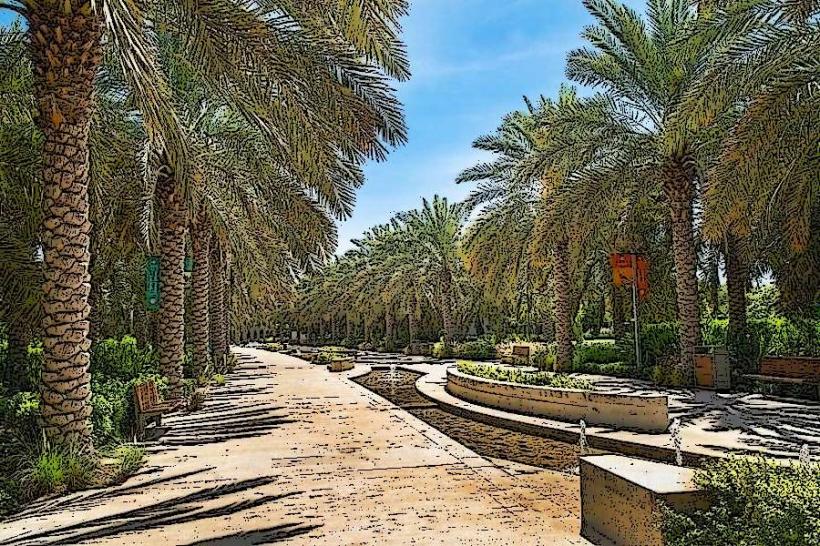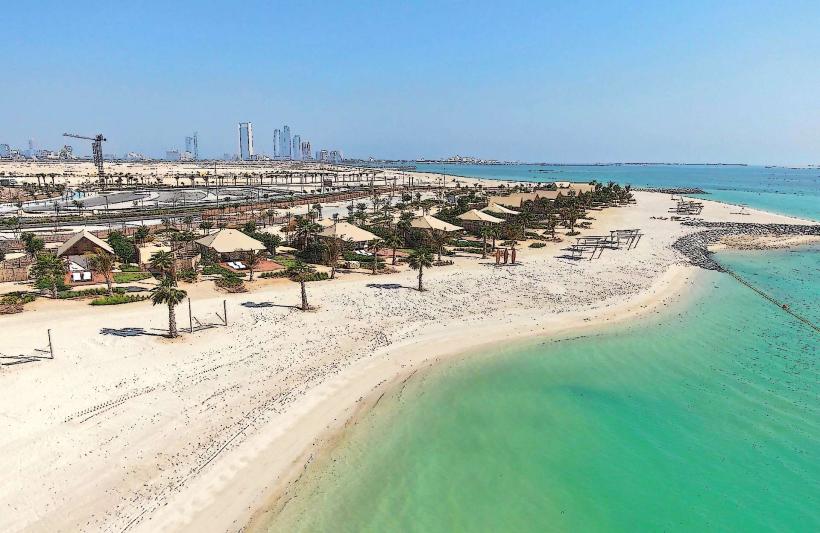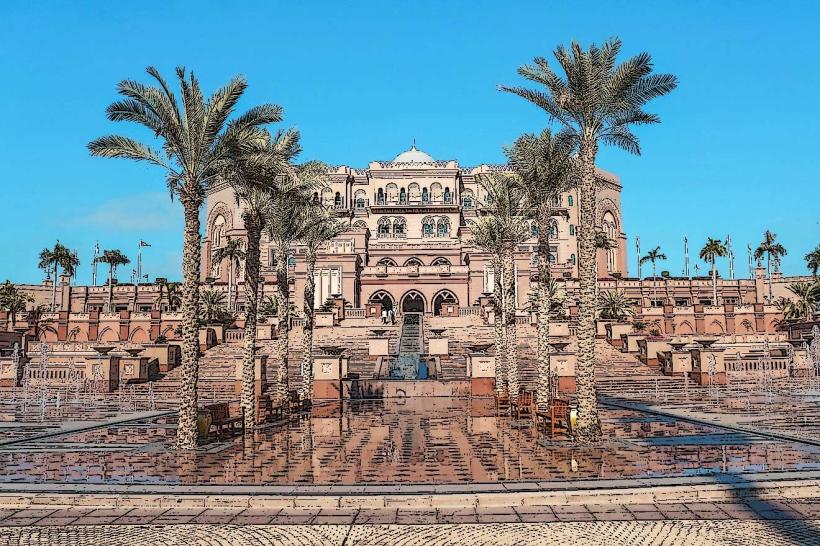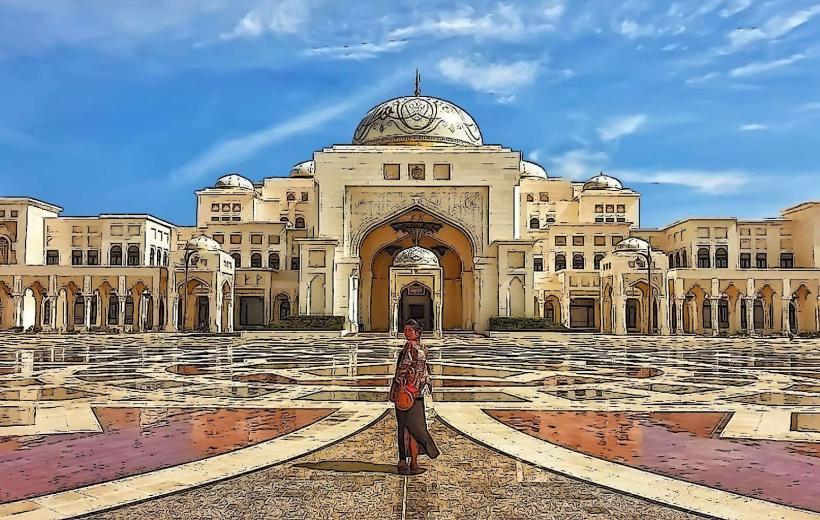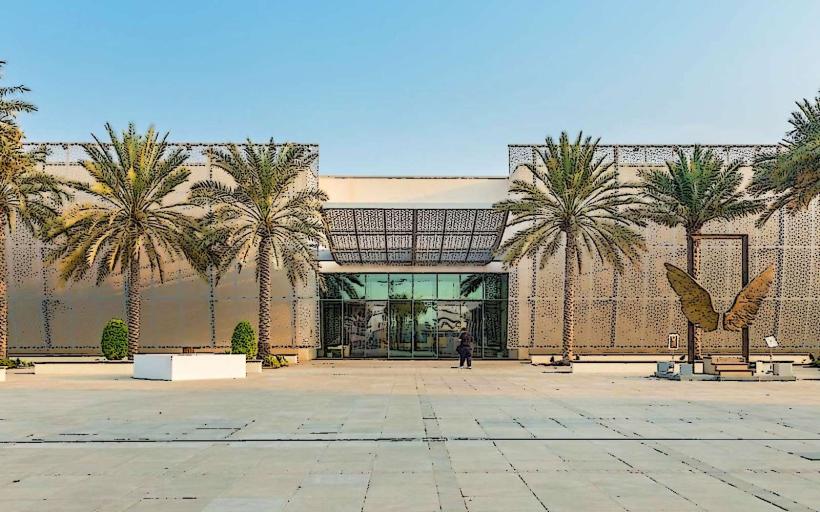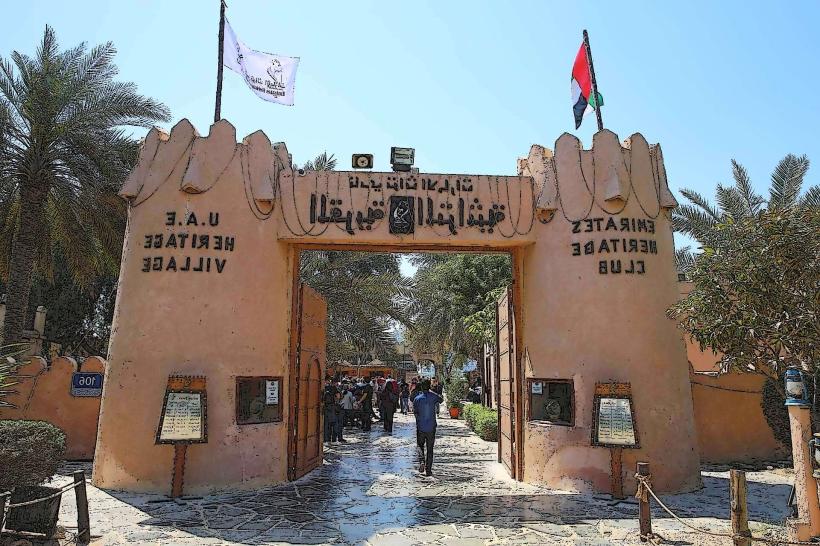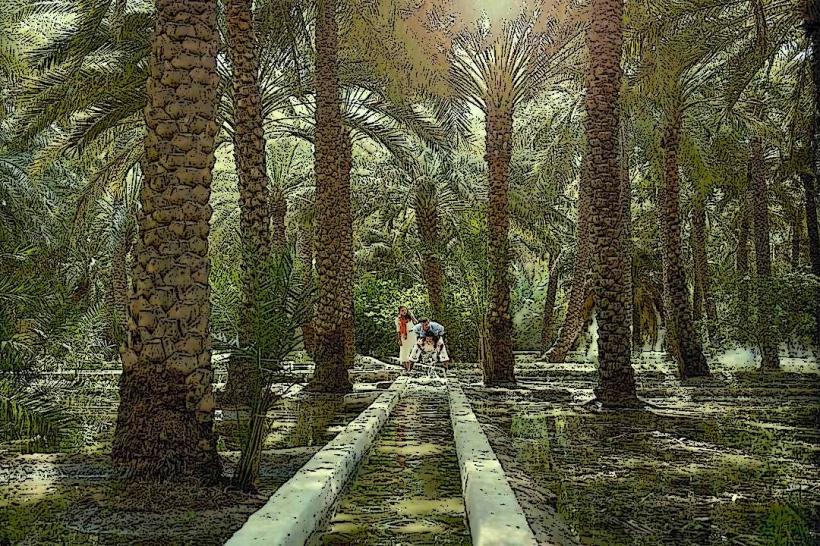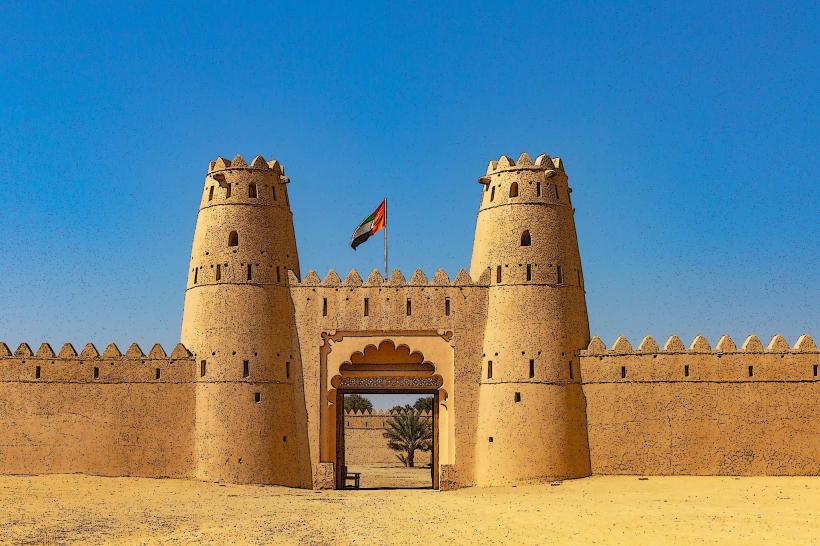Information
Landmark: Qasr Al HosnCity: Abu Dhabi
Country: United Arab Emirates
Continent: Asia
Qasr Al Hosn, Abu Dhabi, United Arab Emirates , Asia
Qasr Al Hosn is a historic fortification located in Abu Dhabi, United Arab Emirates. It is the oldest stone building in the city.
Visual Characteristics
The structure consists of two main parts: the Inner Fort and the Outer Palace. The Inner Fort is a square tower constructed from coral stone and sea shells, featuring thick walls and a crenellated parapet. Its exterior is whitewashed. The Outer Palace, built later, is a larger, rectangular structure also primarily of coral stone, with additions of limestone and concrete. It exhibits a more complex layout with courtyards and multiple levels. Architectural elements include arched windows and doorways, and decorative plasterwork.
Location & Access Logistics
Qasr Al Hosn is situated in the heart of Abu Dhabi city, approximately 1.5 kilometers southwest of the Corniche. Access is via Sheikh Zayed bin Sultan Street (E10) or Khalifa bin Zayed Al Nahyan Street. Ample parking is available in designated lots surrounding the complex. Public transport options include bus routes that stop near the landmark, with several stops within a 5-minute walk.
Historical & Ecological Origin
Construction of the Inner Fort began around 1761, commissioned by Sheikh Dhiyab bin Isa Al Nahyan. Its original purpose was to serve as a watchtower to protect the growing settlement and its pearl diving resources. The Outer Palace was added in the 1940s to accommodate the ruling family. The primary building material, coral stone, was sourced from the local marine environment.
Key Highlights & Activities
Visitors can explore the permanent exhibitions detailing the history of Abu Dhabi and the Al Nahyan family within the Outer Palace. The Inner Fort offers insights into traditional Emirati architecture and defensive strategies. Guided tours are available, providing in-depth historical context. The surrounding grounds are accessible for walking and photography.
Infrastructure & Amenities
Restrooms are available within the visitor center and exhibition areas. Shaded seating is provided in outdoor courtyards. Cell phone signal (4G/5G) is generally strong throughout the site. Food and beverage vendors are located near the main entrance and within the visitor center complex.
Best Time to Visit
The best time of day for photography is in the late afternoon, approximately 1-2 hours before sunset, for optimal natural light on the whitewashed walls. The most comfortable months to visit are from October to April, when temperatures are milder. There are no tide-dependent activities.
Facts & Legends
A unique historical detail is that the original watchtower was built using a technique that incorporated seashells into the mortar, a common practice in coastal construction of the era. This method contributed to the structure's durability against the harsh climate.
Nearby Landmarks
- Cultural Foundation (0.2km Northeast)
- Etihad Towers (2.5km West)
- Corniche Beach (1.8km North)
- Qaryat Al Beri (4.0km Southeast)
- Marina Mall (3.0km Northwest)





